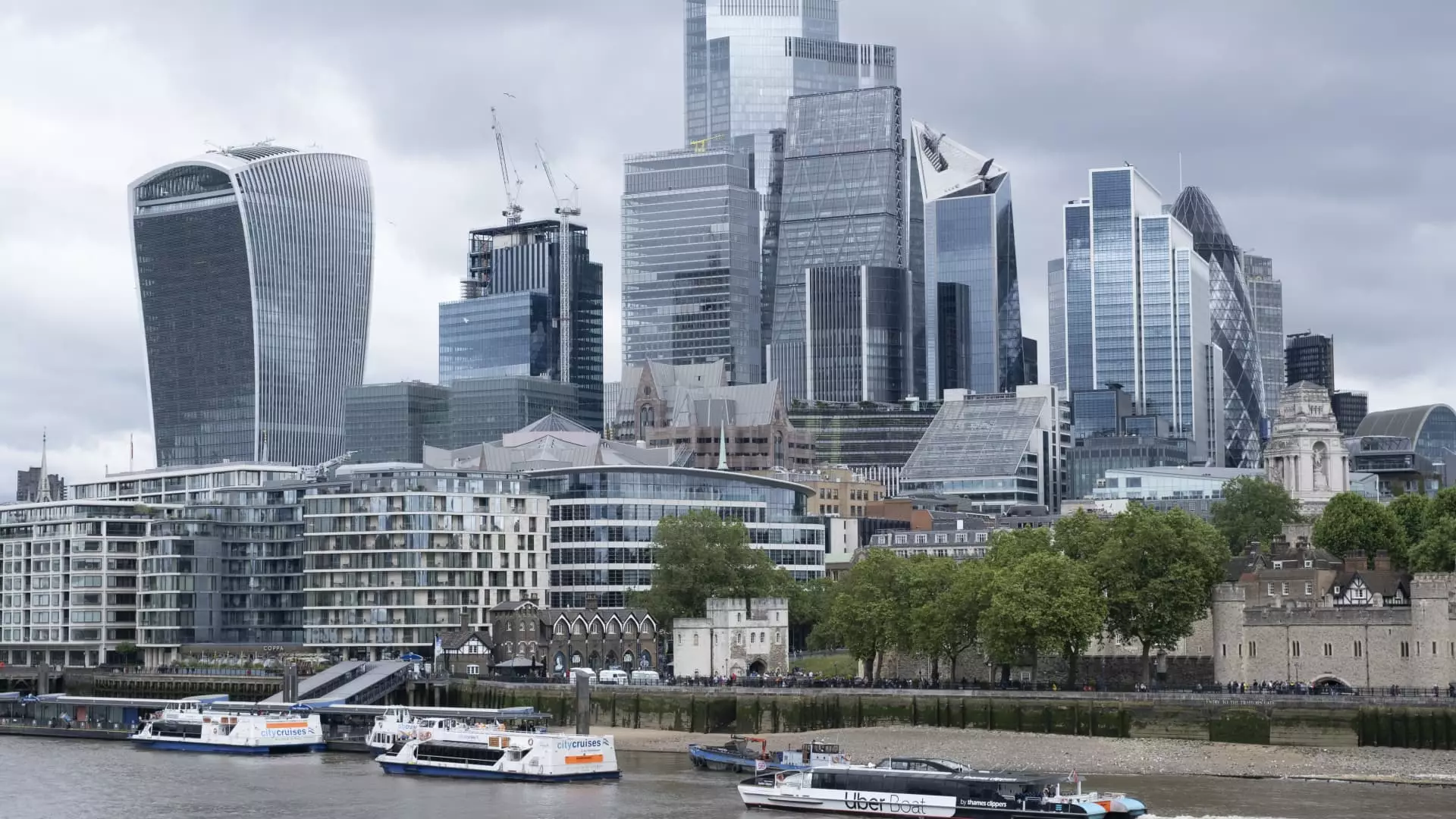The recent assessment by the International Monetary Fund (IMF) regarding the United Kingdom’s economic prospects has generated cautious optimism among policymakers and economists alike. The IMF has raised its 2024 growth forecast for the UK, now projecting a 1.1% growth rate, a notable increase from its previous estimate of 0.7%. This revision marks a significant acknowledgment of the evolving economic landscape in the UK, particularly as factors such as declining interest rates and inflation are expected to stimulate domestic demand. As September data revealed inflation dipping to 1.7% from a staggering 11.1% just a year ago, there is a growing belief that the country is on the path to recovery.
The IMF’s optimistic outlook is bolstered by expectations that the Bank of England will implement a series of interest rate cuts, driven by easing inflationary pressures. Analysts predict that the central bank may lower its key rate from 5.25% at the beginning of the year to around 4.5% by 2024’s end. This anticipated shift could provide the necessary breathing room for consumers and businesses alike, fostering an environment conducive to spending and investment. However, it is crucial to note that despite this potential for growth, the UK’s economy has displayed sluggishness so far, with only a meager 0.2% growth recorded in August following stagnant performance in the preceding months.
As the UK gears up for potentially transformative fiscal policies, the Labour Party’s first budget in 14 years is set to be unveiled. Prime Minister Keir Starmer has indicated that the budget will entail “tough” fiscal decisions, aiming to bridge an alleged £22 billion financing gap. This figure, however, is a point of contention, with former Conservative leaders disputing its validity. Starmer’s commitment to curbing net borrowing has cast a shadow over consumer confidence, introducing an air of uncertainty as households grapple with fluctuating financial forecasts.
While Labour has pledged not to increase significant taxes such as income or corporate tax, a wide-ranging package of tax hikes is anticipated to support budgetary goals. This delicate balancing act between fiscal responsibility and economic stimulus underscores the complexities faced by policymakers in a post-pandemic economy that requires both growth and stability.
Consumer sentiment serves as a vital indicator of economic health, and recent reports suggest a slight uptick in optimism among UK households. The S&P Global UK Consumer Sentiment Index has projected that consumers are becoming more favorable towards their financial situations, showing a readiness to engage in larger purchases. This shift in consumer behavior is critical as it could signal a prelude to increased spending, further propelling the economy forward. Nevertheless, the lingering uncertainties stemming from the forthcoming budget persist as a dampening factor for overall consumer confidence.
In juxtaposition with the UK’s growth forecast, the IMF has updated its predictions for the euro zone, slightly downgrading its growth outlook for 2024 to 0.8%. Notably, Germany’s economic stagnation poses challenges not only for itself but also for the broader European market, suggesting that the region may face uphill battles similar to those seen in the UK. In contrast, the forecast for other advanced economies remains cautiously optimistic, with the US projected to grow by 2.8%, Canada by 1.3%, and Japan struggling at a low 0.3%.
Such comparative analyses emphasize the interconnected nature of the global economy, where shifts in one region can reverberate across markets, impacting trade and investment flows.
While the revised growth outlook from the IMF offers a glimmer of hope for the UK’s economy, significant challenges remain on the horizon. The interplay between interest rates, inflation, consumer confidence, and political decisions will determine the extent of economic recovery in the coming years. Policymakers must tread carefully as they navigate this complex landscape, balancing growth stimulation with fiscal discipline to secure a more stable economic future for the UK.


Leave a Reply